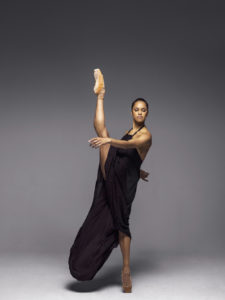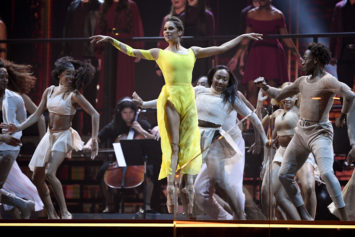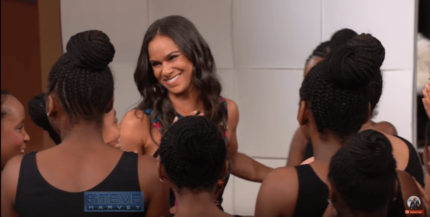
“It has been brought to my attention that some people feel I focus on it too much. I don’t think that it’s possible to tell my story or my experiences getting to this point and all the obstacles I’ve had to overcome without expressing that I am an African American woman. That’s why this is such a feat. That’s why I’ve had the obstacles I’ve had. That’s why this is such a big deal. That’s why it’s historic.”
The ballerina holds no reservations on sharing her story of how she went from anonymity, to being told she was too old for ballet, to becoming the first Black principal ballerina for the American Ballet Theatre. Yet, in all of her acclaim, Copeland reminds the world that before she a ballerina, she is a Black ballerina.
In a clip from the documentary on her life, A Ballerina’s Tale, Copeland explains that her identity is just as vital as her achievements.
“It’s easy for someone who isn’t Black or other or who has never experienced racism to dismiss what I’m saying… it’s easier for them to say, ‘Why do you focus so much on that? You’re a beautiful dancer.’ But the reason I’m here and I have this voice is because I’m Black,” Copeland told Essence.
It’s not that she dances well for a Black ballerina, it’s that she is an amazing dancer who is a proud Black woman. The world of ballet is dominated by those with a paler hue so any progression for women/men of color is celebratory in itself. Copeland and the ABT have even combined their efforts to reign in more diversity to ballet with Project Plie, which involves Copeland mentoring more than a dozen young dancers on the rise.
Her unwavering stance on racial pride coupled with her achievement in ballet is still not as smooth as it may seem. Fellow dancers have come to Copeland revealing that some of the staff at ABT were overheard saying, that she stood out too much because she’s Black. If anything, Copeland is at an apex where such commentary only pushes her to excel further and bring more Black ballerinas into the art of ballet.
“I’m going to continue to be who I am and my experiences as a Black woman have made me who I am. All of a sudden now that I’m in this position, I’m not going to say, “I’m just a dancer.’ It’s a huge deal because I’m a Black woman.”


